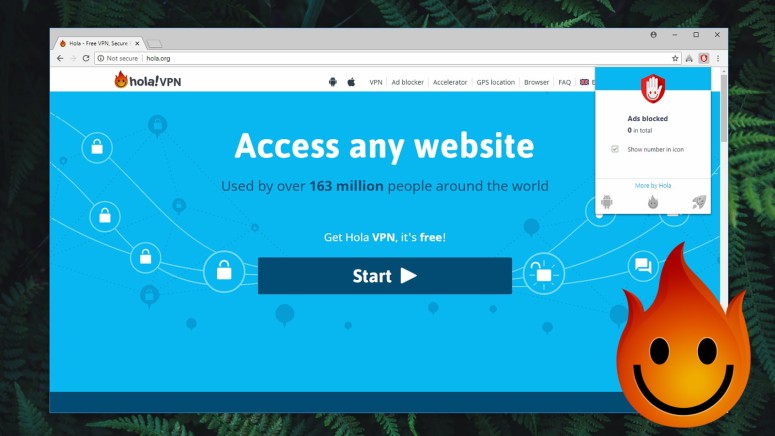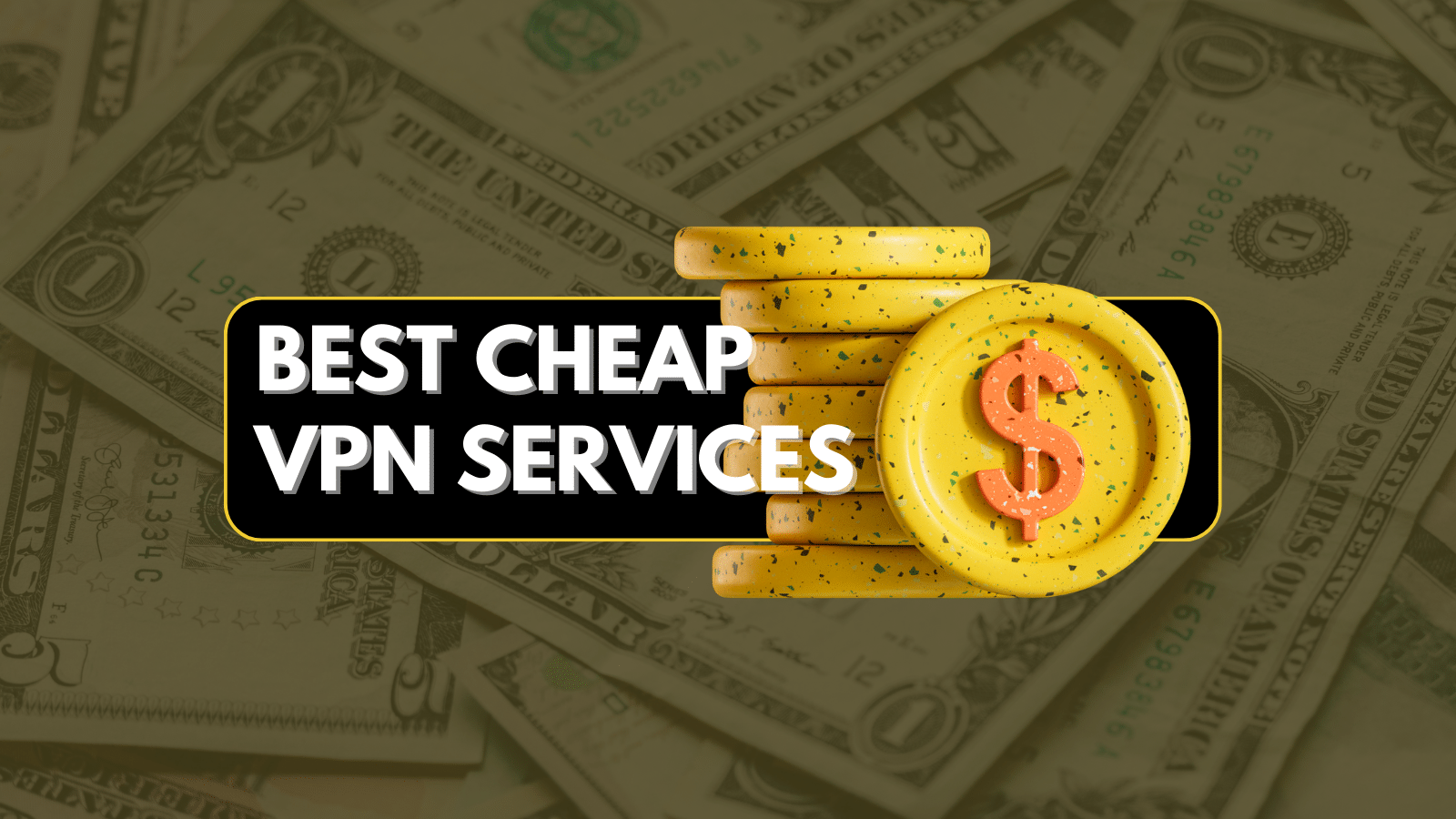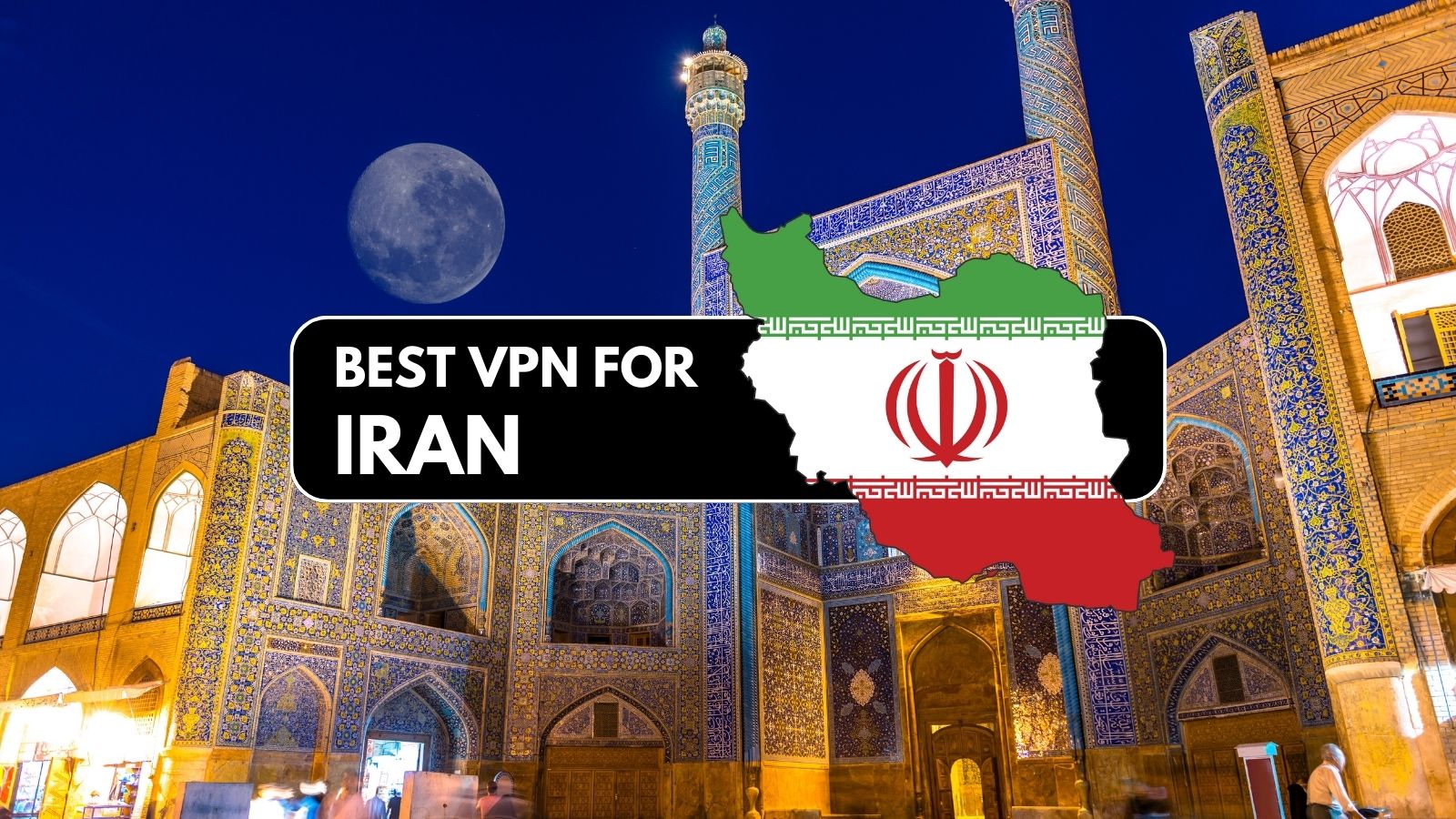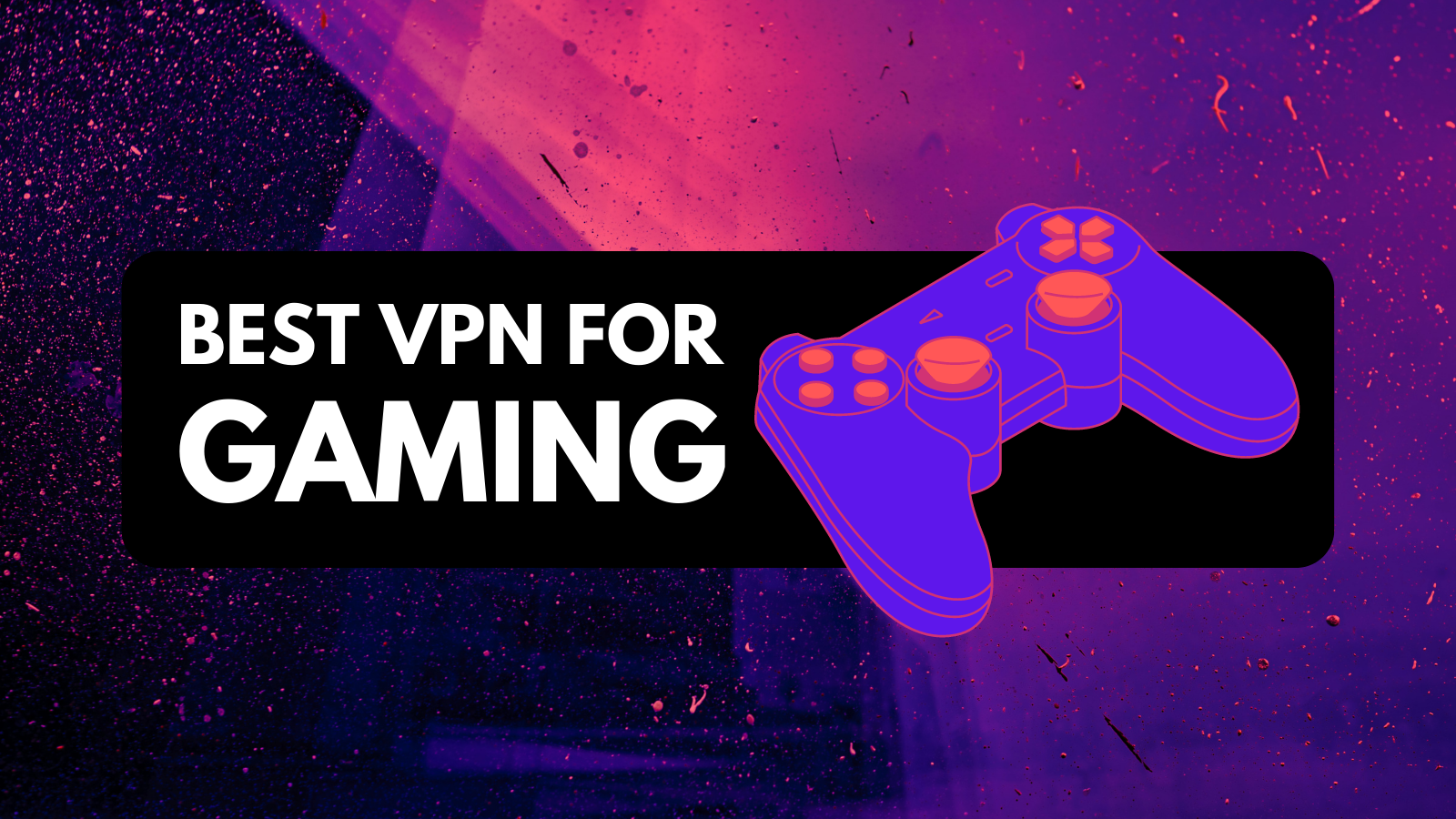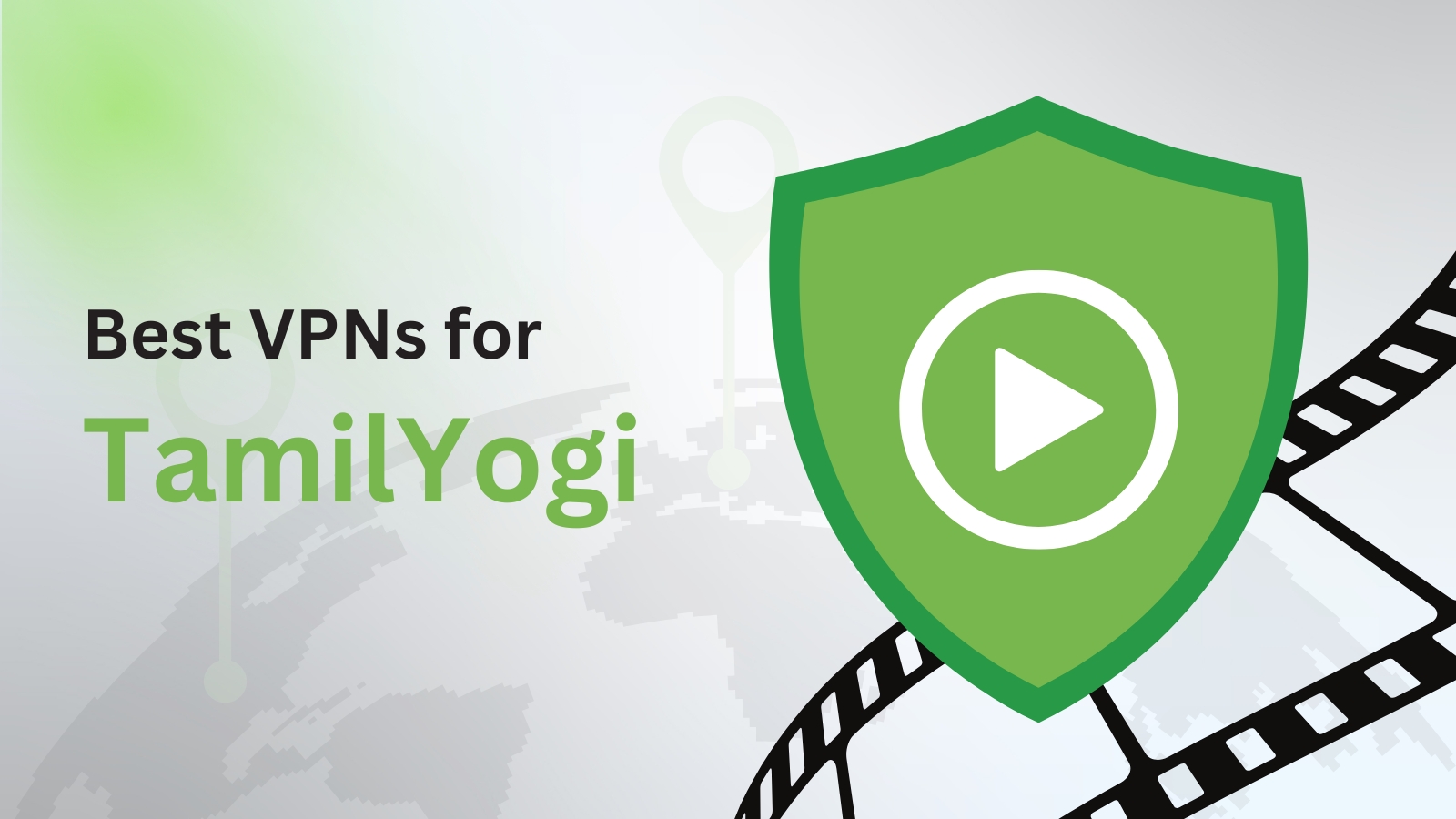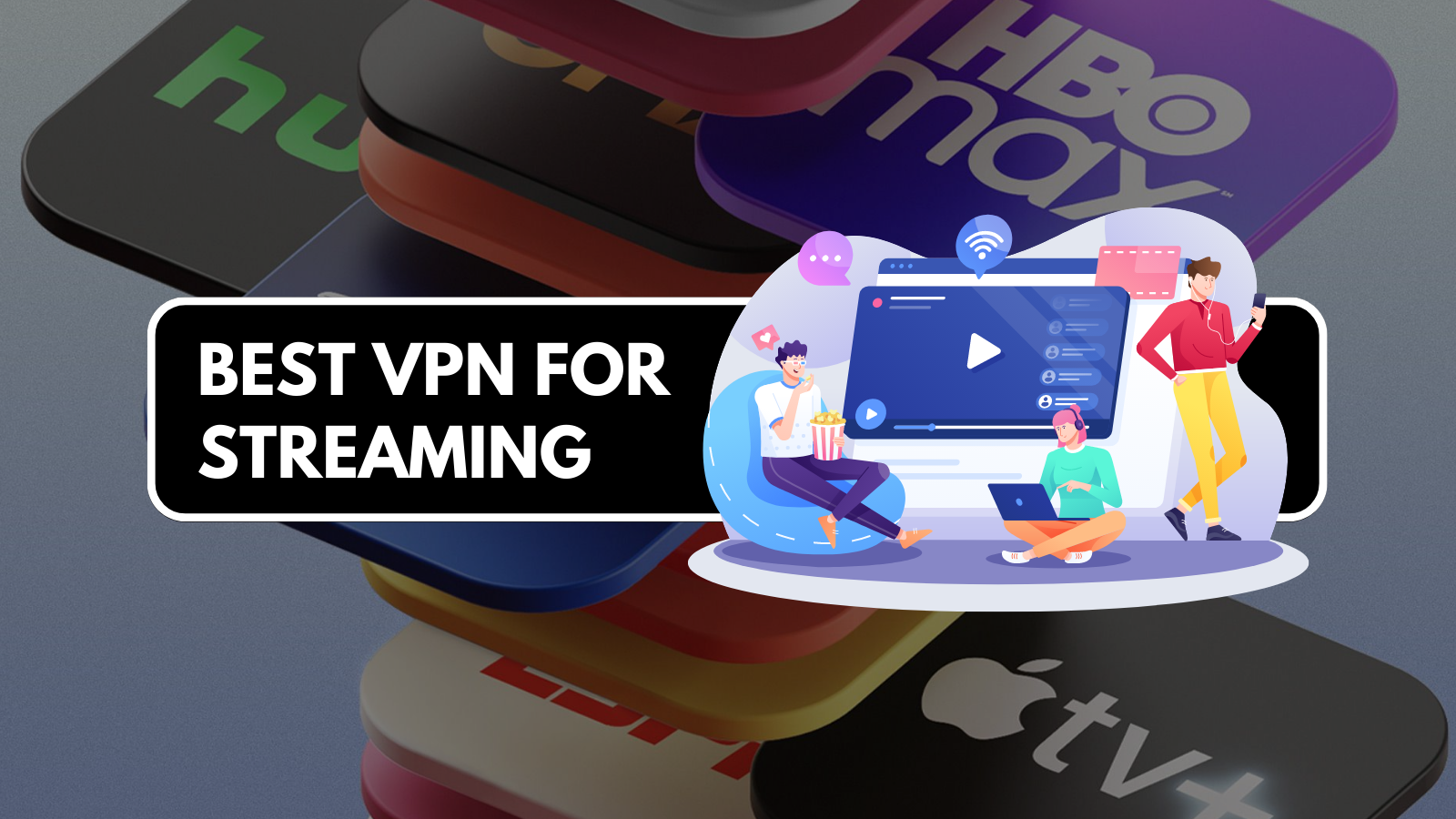When you purchase through links on our site, we may earn an affiliate commission. Here’s how it works.
Best Hola Alternatives of 2018 – Five VPNs That Truly Take Care of Your Online Privacy
Our experts have reviewed 53 VPN providers, which were put through extensive rounds of testing. To learn more about that process, here’s how we review VPNs, where we explain our criteria and our policy of being fully transparent.
We bet that you’re reading this article because you’ve heard about the dangers of using Hola. A while back, this was one of the world’s most popular proxy applications, until it was revealed how it actually works. As we know now, Hola fails at what should be its primary role – keeping you anonymous online. Therefore, let’s talk about the best Hola alternatives.
In this article, you will find a list of five VPN recommendations based on our extensive testing. Then, we’ll also clear any additional doubts you might be having, so make sure to read this article in its entirety. Let’s dive into the world of the best Hola alternatives right now.
Best Hola Alternatives of 2018 - 5 Top Picks!
Let’s talk about what you really want to know. Before we go deeper into our list of the best Hola alternatives, you should know that we’ve tested all of the following VPNs. So, make sure to read full reviews found on TechNadu.
1. ExpressVPN
The first option on our list of the best Hola alternatives is ExpressVPN. The most important reason for this is because this is our top-rated VPN that checks all the right boxes. It’s incredibly secure, performs admirably and protects your private data in the best way possible.
The truth is that this you’ll need to spend some money on this VPN as it doesn’t have a free tier. However, this is the case with any VPN that truly takes care of its users. You’ll get more than 2,000 servers, the ability to unblock websites, download torrents, stream movies, and do pretty much anything else on the Web. At the same time, your data will be fully encrypted and kept secure. Needless to say, this is the perfect way to keep yourself secure online.
To learn more about this VPN, and we highly recommend you to check it out, here’s our ExpressVPN review.
2. Proton VPN
Next, on our list of the best Hola alternatives, we have Proton VPN. This is also a premium-priced option but interestingly enough, it also has a free-of-charge plan.
If you don’t want to pay anything, ProtonVPN will provide three servers to connect to, using one device at the time. However, what’s important to note is that you’ll get unlimited bandwidth even in the free tier. If you decide to pay, your choice of 110+ servers should be more than enough to connect you to different parts of the world. Also, don’t worry about privacy since ProtonVPN is based on OpenVPN, the toughest encryption protocol on the market.
To learn more specifics about this VPN provider, you can read our full ProtonVPN review.
3. Windscribe VPN
Without any doubt, Windscribe is one of the most popular free VPN providers. You’ll get plenty of useful features even if you don’t want to pay a single dollar. Of course, these features grow if you decide to become a paying customer.
In its free plan, Windscribe gives you 10GB of data on a monthly basis (if you provide your real email address, that is). There’s also a handful of VPN servers to pick from while paying customers get to use more than 50 locations. Also, you should know the free plan doesn’t work with Netflix while the paid plan does. And finally, Windscribe doesn’t keep a single log about its users, which is a huge benefit. This is one of the rare VPNs that don’t collect any data, so keep that in mind.
In case you’re interested in learning what paying customers receive, here’s our review of Windscribe. Take a look.
4. TunnelBear
Our list of the best Hola alternatives would not be complete without TunnelBear. This is one of the most user-friendly VPNs out there that is backed up by a sizeable list of VPN locations.
TunnelBear provides a free plan with 500MB of monthly data, and you can get 1GB if you tweet about the service. Therefore, we recommend this VPN if you only occasionally need to secure your Web connection. As you can imagine, 500MB isn’t much and this is a quite restrictive limitation. Still, you’ll get to connect to 20+ countries and enjoy having your connection fully encrypted. If you spend a few dollars on this service, you’ll get to use it without any limitations. All in all, a very capable VPN that also gives a glimpse into its service via its free plan.
A lot more could be said about this provider, so why not take a look at our review of TunnelBear?
5. hide.me VPN
The final option here is hide.me VPN. Once again, this VPN combines entry-level free plans and tries to persuade you into buying a premium-priced subscription. Therefore, you get the best out of both worlds.
The free plan of Hide Me comes with 2GB of monthly data. So, not quite as generous as Windscribe but better than what TunnelBear offers. You won’t get to stream media but your connection will be fully encrypted. The free plan comes with 3 servers, but you can unlock 150+ servers if you become a paying customer. And finally, it’s good to know that Hide Me offers 24/7 customer support no matter if you pay for this service or not.
You learn why this is one of the best Hola alternatives by checking out our hide.me VPN review.
Best Hola Alternatives – Additional Considerations
So far, you know why using Hola is a bad idea and you also know the best Hola alternatives. However, we’re sure you have other questions as well. We’ll try to answer them, so take a look.
Why Should You Stay Away from Hola?
One of the main reasons why Hola was so popular is due to the fact that it’s free of charge. The company claimed to have invented a unique system that doesn’t use expensive servers, keeping their costs at bay. However, it didn’t take too long for users to realize that they’re being scammed. Here’s what you should know about Hola:
- It logs plenty of personal data: As we noted in our article on the dark side of free VPNs, data collection is something you can expect from free services. Therefore, they are not ‘free’ in any way. By taking a look at Hola’s Privacy Policy, you can see that they collect information regarding ‘browser type, Web pages you visit, time spent on those pages, access times and dates’. However, taking a deeper look at Hole will reveal that they collect your real name, IP address, email, screen name, payment and billing information, and more.
- Hola comes from Israel: This should normally give you a piece of mind since Israel is not part of the 14 Eyes Alliance. This is a group of countries that exchange surveillance data, which can be a threat to your privacy. However, even though Israel is outside of this Alliance, it has shown interest in sharing data with the rest of the countries.
- There’s no encryption: Instead of using secure servers and tunneling your traffic like regular VPNs do, Hola is a P2P (peer-to-peer) VPN. This means that the bandwidth of its users is the central part of this equation. You let other people use your bandwidth by connecting with you, and vice versa. There’s no encryption involved and you don’t know what really happens with your data.
- Hola leaks your personal data: Once again, Hola isn’t capable of doing what’s made to do. By running DNS and WebRTC leaks, it was found that Hola leaks your personal information, including your real IP address. This means that you get no protection at all, so you better off not using Hola in the first place.
- Numerous other problems: When it comes to other issues, you should know that Hola doesn’t work with Netflix, it doesn’t support torrenting, and there’s a limited device support.
Is Hola a Proxy or VPN Provider?
Just like with numerous other statements on Hola’s official website, you can see that Hola is both a VPN provider and Proxy. However, this can’t be true in practice. Hola cannot be compared to full-fledged VPNs that create secure tunnels for your data. Hola is simply a network of computers whose bandwidth is used to reroute your data. In the best-case scenario, Hola is a Proxy service.
Should You Use a Proxy or VPN?
A lot could be said about proxies, VPNs, and other security-related tools. However, we’ll try to keep things simple in this article. If you truly care about your safety online, you should go with a VPN provider - preferably, a paid one. As already noted, a VPN is the only way to anonymize your traffic, unblock websites, and even unblock Web services not yet available in your country.
In general, proxies are used to reroute your traffic and make websites think you’re in a different physical location. They can’t encrypt your traffic and keep it hidden from third parties. To learn more, here’s our article on the differences between VPNs and proxies.
What’s the Best Hola Alternative for Chrome?
Many of you are accustomed to using Chrome and Hola as its extension. If that’s how you want things to stay, you should know that numerous VPNs provide Chrome extensions. For example, ExpressVPN is one of those services. However, it’s always better to run a VPN natively, by installing it on your computer. This is how your entire incoming and outgoing traffic will be encrypted. If you only use a Web browser extension, everything you do within that browser will be protected. However, other Web-connected applications will stay use your fully open Web connection.
In case you really want to take your privacy into your hands, here’s our article on the best anonymous browsers.
Final Thoughts
Dear readers, this is where we end our article on the best Hola alternatives. We hope that you’ve found it to be useful. If there’s anything you’d like to know, make sure to write us a comment below. We’ll do our best to answer you in a timely manner.
In case you made it this far, why not share this article online? Also, you can follow TechNadu on Facebook and Twitter – so, stay on top of the latest news as they come. Thanks!

